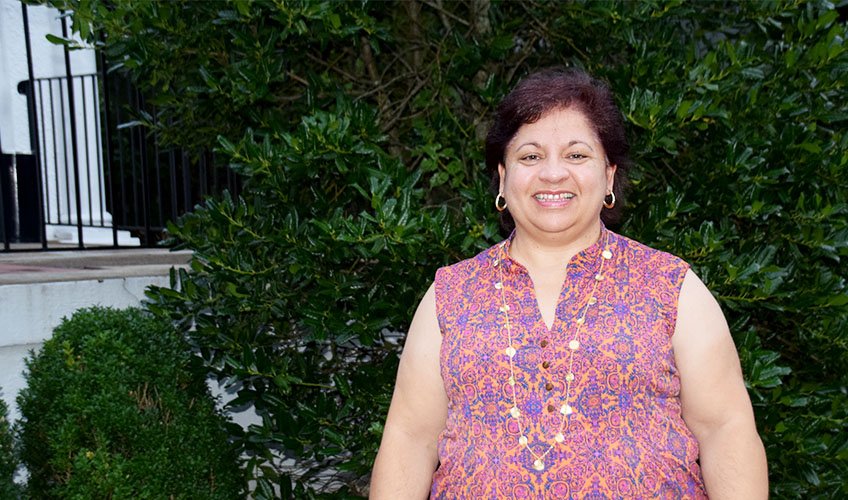
Soon after entering college in fall 1981, New York Epsilon Yvette Ruiz Hober realized there were very few resources on campus for female students at Rensselaer Polytechnic Institute (RPI). “We wanted a support group going forward,” recalls Yvette. So she and her freshman year roommate, New York Epsilon Susan Murdock Thompson, decided that creating their own sorority would be a great idea. RPI has a predominantly male population, so it is no surprise that Yvette and Susan were looking for fellowship and encouragement from a sisterhood.
In February 1982, with one semester behind them, Yvette and Susan decided to begin the process. They asked their friends to inquire with their friends to feel out interest in starting a sorority. The first meeting was held in Yvette and Susan’s dorm room. “At the meeting, we decided we could and we would do it.” The group was quick in determining who would be a part of the sorority, but the next question was how they would start it.
Yvette served as the first President and Susan as Vice President of the organization. Yvette and Susan approached the other sororities and campus organizations to ask about creating a constitution and the structure of the group. Finally, in April 1982, two months from their initial meeting in the dorm room, they successfully petitioned the Dean’s Office and were approved as a recognized sorority on campus. During RPI’s Grand Marshal Week, a big celebration to elect the next student body president, the campus was introduced to their new organization: Kappa Phi.
Yvette considers why they didn’t try to create a sorority in the traditional way. She explains that they wanted the people they wanted, and they wanted to create their own identity, not fit the mold of an existing organization. But it was always a goal for Kappa Phi to affiliate with a national organization. From the start, they searched for national organizations — not just who would want them, but who they wanted as well. And since RPI attracts a wide variety of students, including international students, the Kappa Phi women wanted an organization that was not just local, but everywhere. The national organization they wanted to affiliate with would allow for networking, branching out and being a bigger and better organization on their campus.
The more they learned about Pi Beta Phi, the more Kappa Phi had in common with Pi Phi. They were also fond of Pi Phi’s philanthropy. In November 1984, the members of Kappa Phi became members of Pi Beta Phi Fraternity.
As Yvette reminisces about the affiliation process, I can only imagine what a tiring and difficult process it was for this group of women. “Difficult, but worth it,” says Yvette, “We were not resting on our laurels – we were striving to be better.” Does Yvette’s story remind anyone else of another group of 12 brave collegiate women looking for fellowship and support, taking it upon them to make a dynamic difference on their campus?
